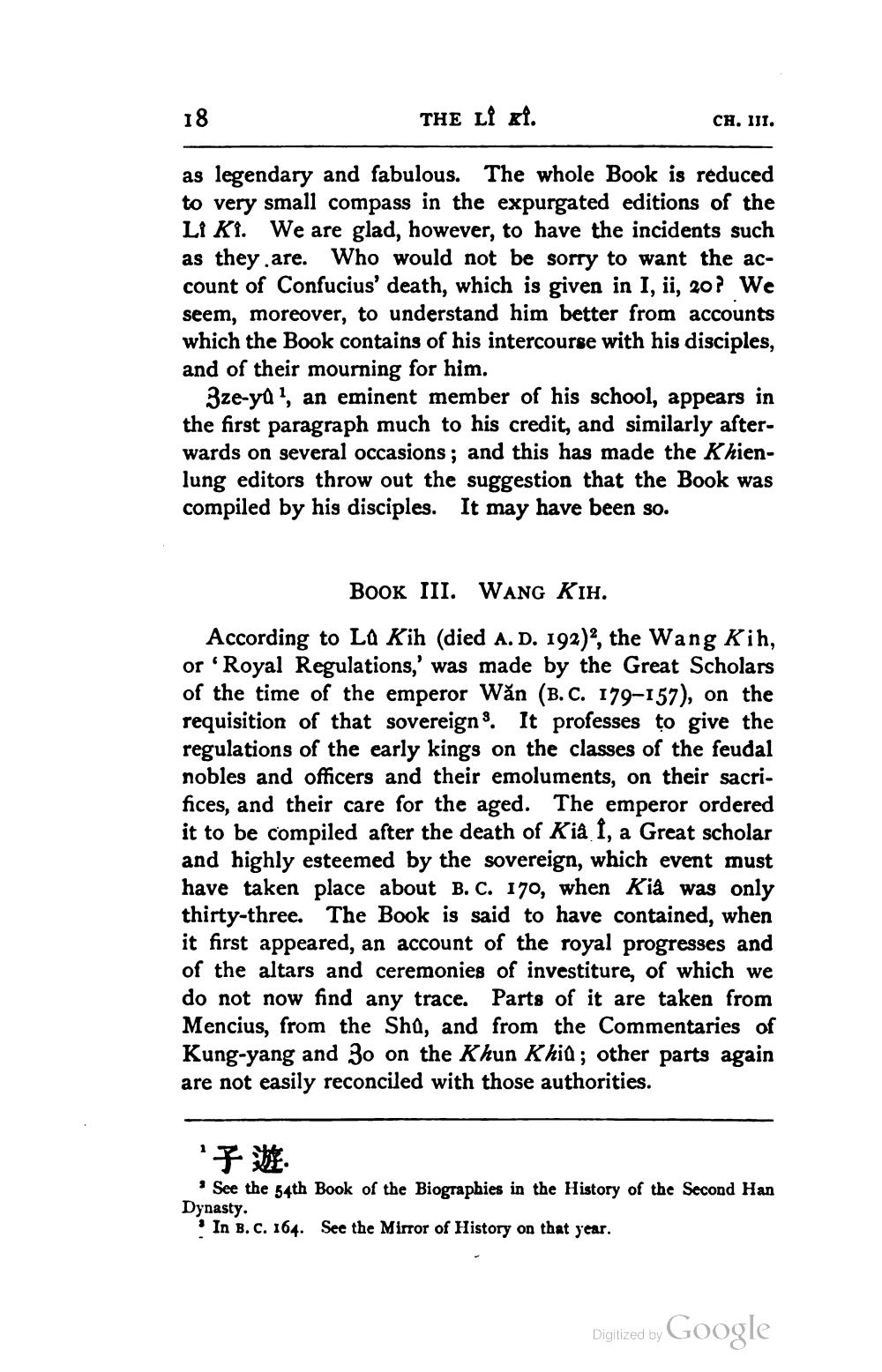________________
THE LÎ xf.
CH. 111.
as legendary and fabulous. The whole Book is reduced to very small compass in the expurgated editions of the Li Ki. We are glad, however, to have the incidents such as they are. Who would not be sorry to want the account of Confucius' death, which is given in I, ii, 201 We seem, moreover, to understand him better from accounts which the Book contains of his intercourse with his disciples, and of their mourning for him.
Zze-ya!, an eminent member of his school, appears in the first paragraph much to his credit, and similarly afterwards on several occasions; and this has made the Khienlung editors throw out the suggestion that the Book was compiled by his disciples. It may have been so.
Book III. WANG Kih. According to La Kih (died A.D. 192), the Wang Kih, or 'Royal Regulations,' was made by the Great Scholars of the time of the emperor Wăn (B.C. 179–157), on the requisition of that sovereigns. It professes to give the regulations of the early kings on the classes of the feudal nobles and officers and their emoluments, on their sacrifices, and their care for the aged. The emperor ordered it to be compiled after the death of Kia I, a Great scholar and highly esteemed by the sovereign, which event must have taken place about B. C. 170, when Kia was only thirty-three. The Book is said to have contained, when it first appeared, an account of the royal progresses and of the altars and ceremonies of investiture, of which we do not now find any trace. Parts of it are taken from Mencius, from the Sha, and from the Commentaries of Kung-yang and Zo on the Khun Khid; other parts again are not easily reconciled with those authorities.
'F*
See the 54th Book of the Biographies in the History of the Second Han Dynasty.
• In B.C. 164. See the Mirror of History on that year.
Digitized by Google




